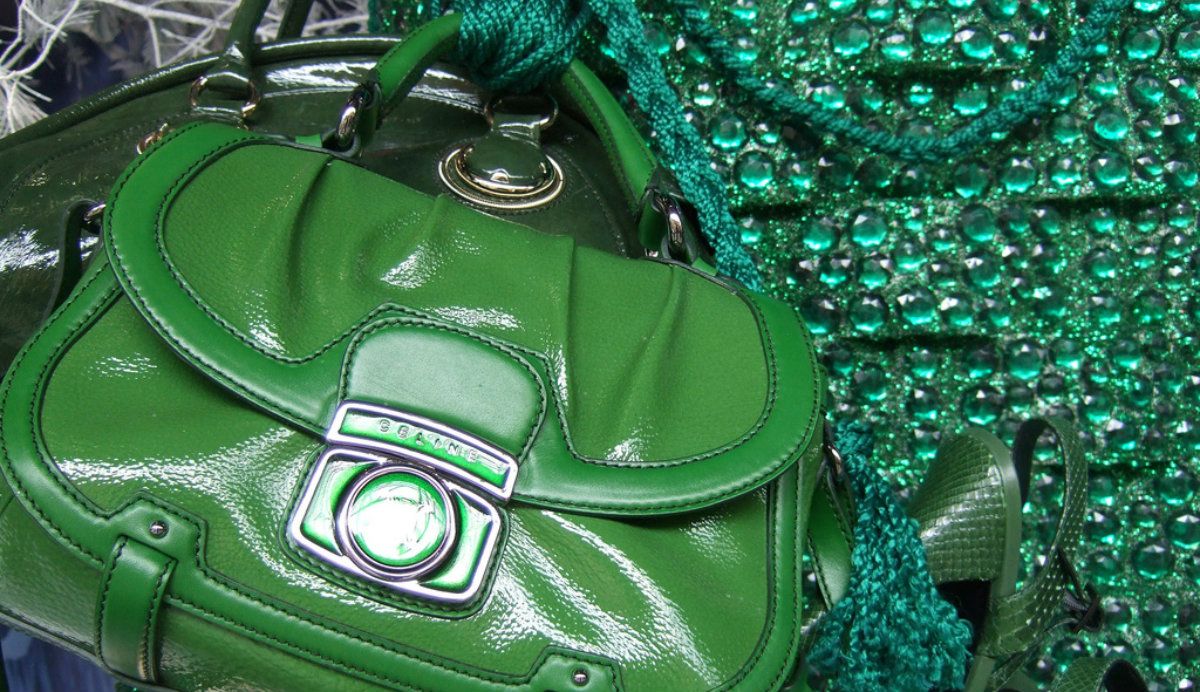The fashion industry has the fourth largest environmental impact of any industry in the UK, exceeded only by housing, transport and food. Yet it's all too easy to forget this impact, not to mention ethical concerns around supply chains and factory working conditions, in the rush for Black Friday bargains. In this post Amira Battle, a first year PhD student at the Centre for Business, Organisations and Society, considers the tensions between consumerism and sustainable fashion.
Black Friday is one of the largest shopping days of the year, with consumers spending an estimated $5 billion in the US and £2.6 billion in the UK. As consumers and retailers count down to the big day, ethical and environmental concerns are quickly forgotten.
So what is Black Friday? It’s the “official” beginning of the Christmas shopping season as goods are sold with steep discounts. And it has become much more than one day, with promotions and discounts spanning the weeks leading up to and post the day itself. The UK is still finding its feet with Black Friday, but many Britons have added the date to their shopping calendar. Clothing and fashion goods, alongside electronics, are among the most desired items during the holiday season, bringing in over $40 billion to US clothing stores.
What does sustainability have to do with fashion?
Clothing production and consumption has significant social and environmental impacts throughout its life cycle and has often been critiqued for its lack of sustainability. Environmentally, the fashion industry has the fourth largest environmental impact of any industry in the UK. Socially, the working conditions in many factories could be described as dubious at best. From faintings in factories in Cambodia and factory collapses in Bangladesh to the destruction of textile industries in developing countries, the impact of the fashion industry on social and environmental sustainability cannot be underestimated.
The fault lies on both sides. Many fast fashion and luxury brands prioritise volume of production, quick turnaround, and sales over sustainability. Falling for the charm of lower priced clothing that mimics runway trends, shoppers value cost and look over ethics.
At the same time, people's motivations in fashion buying are not straightforward. People may consume for fun and entertainment, to bond and socialise, and to create identity through consumption. Black Friday sales heighten these aspects by enabling consumers to buy items they might not otherwise be able to afford. By emphasising the apparent scarcity of items and time available to buy them, retailers create a sense of urgency that compels people to spend money. The result is that Black Friday sales provide a temporary relief to consumers' inner discontent; however it's estimated that buyers will be left with £441 million worth of regret from these purchases, and regret leads to increased waste.
Sustainable Shopping Habits
Even if you have a desire to consume and still “do good”, it's difficult to know how to shop for fashion sustainably. As a part of the research for my Masters degree, I conducted a study to explore what practices people thought were sustainable and unsustainable in fashion consumption.
Participants in the study were unsure about what qualifies as sustainable, but found it easier to identify unsustainable habits. These included buying items unnecessarily, impulse purchasing, following trends, and not considering materials or sourcing whilst shopping. These habits become even more pronounced in peak sales seasons: it can be difficult to be mindful in the face of a 2 for 1 offer.
Alternative Approaches to Black Friday
So how will you approach Black Friday? At the other end of the consumer spectrum, you could choose to buy nothing. Many would argue that the best way to be sustainable is to consume nothing at all. Instead of celebrating Black Friday, you could participate in Buy Nothing Day, signing up to go 24 hours without buying anything. If this proves too much of a challenge, organisers suggest that if you must shop, try to support local, independent brands.
I would further this advice with some suggestions of other ways to consume fashion sustainably this holiday season. Discussions with participants on sustainable approaches to fashion buying, as well as a review of the literature, offered some of the following ideas:
- Buy only what you need, love, and know that you will wear
- Shop secondhand as it gives an item of clothing a new lease on life
- Consider renting a holiday party outfit. Instead of buying a new outfit to wear once, renting allows you to have a new look for every party whilst also extending the longevity of existing clothing items.
- Make a shopping list to reduce impulse purchasing and mindless consumption.
- Check out Ethical Hour’s Twitter campaign #Shopethicalinstead for ethical and sustainable gift ideas. Many of these items are made with environmental and social sustainability at their core.
Black Friday sales season will never be green, but not spending or spending purposefully may be a step in the right direction.
Header image by John Keogh under licence CC BY-NC 2.0




Excellent post, and a great subject of study! We can only hope that more people like you will delve into the subject of sustainability in the fashion industry. If you are still active in this area, please let us know, we would love to exchange some notes and maybe feature some of your writing on our site.
I can only add to your excellent article, that oftentimes consumers confuse and mix different concepts when it comes to sustainability and ethics in fashion, which opens many ways for big brands to eco wash their products, or maintain sub-par work standards because their products are ie. organic cotton.
We are ourselves very passionate about slow fashion and supporting the ethical, independent designers. I would love to share a post that ties very nicely into what was written in here:
https://www.newdresscode.com/stylecode/slow-fashion-movement-how-to-add-sustainable-clothing-to-your-style/